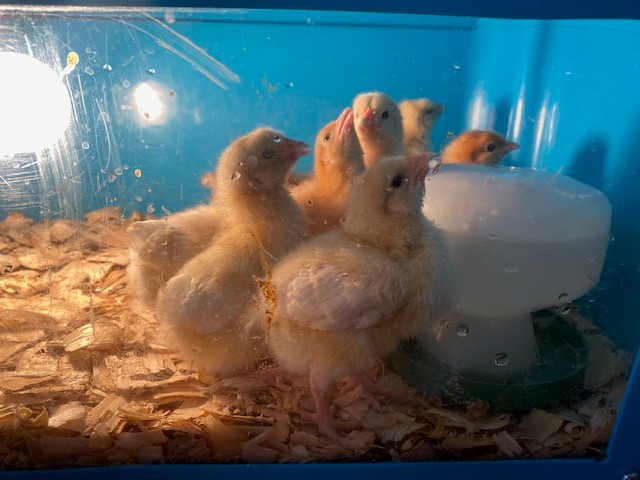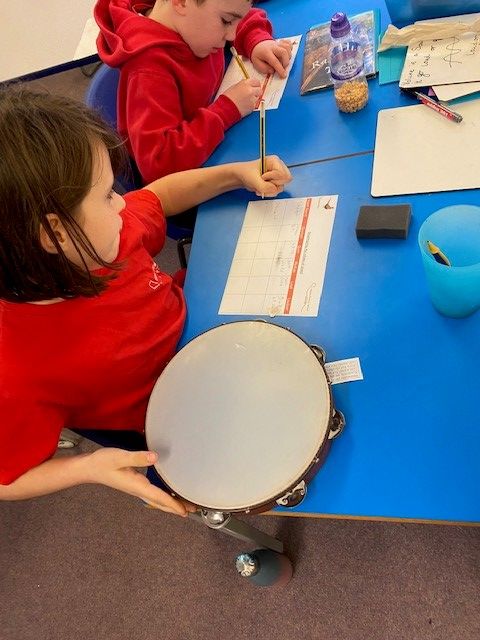Science
Science teaches us an understanding of natural phenomena through the disciplines of chemistry, physics and biology. It aims to stimulate a child’s curiosity in finding out why things happen in the way they do. It teaches methods of enquiry and investigation to stimulate creative thought. Children learn to ask scientific questions and begin to appreciate the way in which science will affect the future on a personal, national and global level.
The teaching of science enables children to:
- Ask and answer scientific questions
- Plan and carry ut scientific investigations, using equipment (including computers) correctly
- Evaluate evidence, and present their conclusions clearly and accurately
- Know and understand the life processes of living things
- Know and understand the physical processes of materials, electricity, light, sound & natural forces
- Know about the nature of the solar system, including the earth
Within the teaching of science we aim to ensure:

- Children’s curiosity is encouraged and valued; they are excited and enthusiastic when anticipating in their science lessons
- Science is practical and hands on and children enjoy learning through exploration and questioning
- Children have the opportunity to use good quality resources
- Children are exposed to high quality teaching and learning experiences
- Enrichment events, school visits and workshops occur
- The progression of science skills is evident and taught throughout the school
- Children confidently use accurate scientific vocabulary in context
- Teachers use different assessment strategies during science lessons
- All children are actively engaged in science enquiry - using a variety of strategies, independently making decisions and answering their own questions
 A variety of teaching and learning styles are used in science. Our aim is to develop children’s knowledge, skills and understanding. Sometimes we do this through whole-class teaching, while at other times we engage the children in an enquiry-based research activity. We encourage the children to ask, as well as answer scientific questions. Children have the opportunity to use a variety of data, such as statistics, graphs, pictures and photographs. They use IT in science lessons where appropriate to enhance learning, take part in role-play & discussions and present reports to their peers. As much as possible, practical experiments form a major part of the learning. Here, the children can also engage in a wide range of problem-solving activities.
A variety of teaching and learning styles are used in science. Our aim is to develop children’s knowledge, skills and understanding. Sometimes we do this through whole-class teaching, while at other times we engage the children in an enquiry-based research activity. We encourage the children to ask, as well as answer scientific questions. Children have the opportunity to use a variety of data, such as statistics, graphs, pictures and photographs. They use IT in science lessons where appropriate to enhance learning, take part in role-play & discussions and present reports to their peers. As much as possible, practical experiments form a major part of the learning. Here, the children can also engage in a wide range of problem-solving activities.
In all classes, children have a wide range of scientific abilities, and we ensure that we provide suitable learning opportunities for all children by matching the challenge of the tasks to the ability of the child.
This is achieved in a variety of ways:
- Setting tasks which are pen-ended and can have a variety of responses
- Setting tasks of increasing difficulty through the use of extension or higher order questions
- Providing resources of different complexity, matched to the ability of the child
- Teaching children in mixed-ability groups
- Making links across subjects
Science is taught explicitly as a subject. Teachers have designed their own science units that are adapted to cover an objective at least once within each key stage that suits the needs of the class. As classes are mixed age groups, the science content in Y1&2 covers the KS1 content, the science in Y3&4 includes the lower KS2 content and in Y5&6 the Upper KS2 content is covered.
The working scientifically objectives are taught alongside the scientific content teaching, at least once across each year and are fitted in where they are most relevant.
Unit plans are in a pro forma that suits the needs of the class teacher but will clearly outline:
- Learning objectives with clear progression through the unit
- Key questions to promote investigation
- Practical opportunities and resources
- IT and/or Cross-curricular links (including writing) wherever possible
To ensure progression within science, teachers use the progression document provided to show the skills, topics and keywords to ensure children are progressing appropriately. This tool allows teachers to assess children’s scientific abilities and plan future lessons.
The recording of work across the school will vary depending on the age group and topics being explored. Evidence may be in the form of:
- Cross-curricular writing
- Worksheets
- Photos of practical work
- Observations made during a lesson if no physical work is recorded
- Displays
All work is marked and assessed in a way that is appropriate for each age group, using the progression grids. Books are monitored to check on progress across the year.
